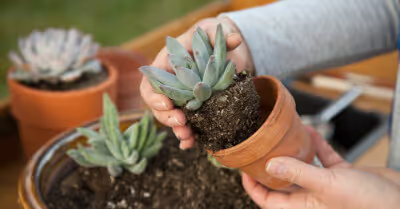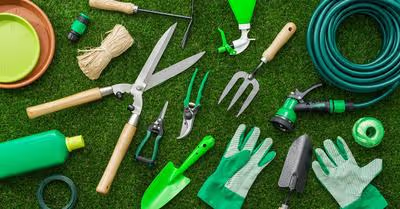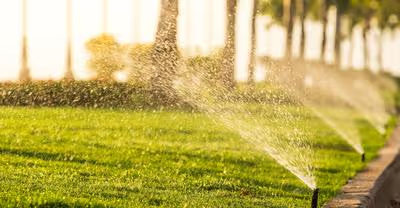Table of Contents
What Are Soil Amendments?
When we think of gardening, we think of plants. But there's a lot more to gardening than just plants. To have a healthy and thriving garden, you need to take care of the soil too.
Soil amendments are materials that are not used as fertilizer but improves the texture of the soil. Sandy soils can be enhanced by adding organic matter such as compost or peat moss, while sand or grit can improve clay soils.
While soil amendments do not add concentrated nutrients to the soil, they can help improve plant growth by providing better aeration and drainage.
When choosing soil amendment, it is important to consider the pH of your soil and select an amendment that will make the pH more neutral or acidic if needed. Soil amendments are also a good way to add organic matter to your garden, which helps improve soil health and harbors beneficial microorganisms.
By taking care of your soil, you'll be able to grow healthier plants that are better equipped to resist pests and diseases. Soil amendments can also help with water conservation, and they can even increase your garden's yield.
Types of Soil Amendments
Organic Amendments
Organic soil amendments are an important part of any organic gardening regimen. There are many different organic soil amendments, each with its unique properties. By understanding the benefits and drawbacks of various organic soil amendments, you can choose the right ones to create healthy, fertile soil for your plants.
One common type of organic soil amendment is compost. Compost decomposes over time, releasing nutrients that help improve the structure and fertility of the soil. Another popular organic amendment is peat moss, which helps retain moisture and increase nutrient retention in the ground.
Inorganic Amendments
Inorganic amendments, such as gypsum, are added to soil to improve its physical and chemical properties. Gypsum is a source of calcium and sulfur, which helps to improve the soil's structure and water retention capacity. It also helps to reduce alkalinity and fix nitrogen in the ground. Gypsum is generally safe for use on most soils and can be applied at any year. However, it is important to follow the recommended rates to avoid overfeeding your plants.
What Are Fertilizers?
Fertilizers are a type of soil amendment used to increase the fertility of the soil. They can be organic or inorganic, and they come in various forms, including powders, pellets, and liquid solutions.
Fertilizers provide nutrients to plants, which allow them to grow bigger and healthier. Gardeners use fertilizers to improve the health of their plants and increase their yield. Fertilizers can also help remediate nutrient-poor soils.
Fertilizer is an important tool for any gardener, regardless of their level of expertise. It can help improve your plants' overall health and condition, making them more resilient to disease and pests.
However, it's important to understand how and when to use fertilizer properly, or you could end up doing more harm than good.
Types of Fertilizers
Synthetic Fertilizers
These are now a mainstay of modern agriculture, and as the world's population continues to grow, so does the demand for these products. Synthetic fertilizers are made from inorganic materials, such as ammonium nitrate and potassium sulfate, which help them release nutrients slowly over time to plants. While this slow release is desirable in theory, it can also lead to runoff and leaching if not used properly.
Natural Organic Fertilizers
Natural, organic fertilizer is a product derived from either plant or animal sources. These fertilizers are popular because they are more environmentally friendly and less harmful to plants than synthetic options.
Organic matter is essential to plant health and soil fertility. Unfortunately, many farmers and gardeners rely on synthetic fertilizers to boost their plants' growth. While these fertilizers may provide a quick fix, they can also damage the environment and create dependency on the chemicals.
A better option is to use natural organic fertilizers, which provide significant quantities of organic matter while benefiting the soil's health.
So, What Are the Differences Between Soil Amendments and Fertilizer?
Soil amendments and fertilizers are two different things. The difference between them is that soil amendment consists of many natural materials such as manure, compost, lime, rock phosphate, and other organic matter.
These natural minerals improve the quality of the soil by adding nutrients or minerals to it. On the other hand, Fertilizer has been manufactured specifically for plants and consists mainly of nitrogen - phosphorus- potassium (NPK) compounds in various proportions depending upon their use. It can enhance plant growth through increasing nutrient availability and may harm plants if not applied correctly.
Fertilizer does not contain all the necessary macro and micronutrients that come from naturally occurring soil amendments like manures etc., thus causing an imbalance in nature's system.
When deciding if you need an amendment or fertilizer, first determine what type of plant life you're looking to grow - this will help inform the best choice for your situation.
Recent Articles

















